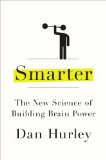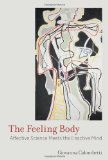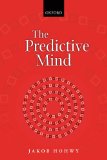January 8, 2014

Brainstorm: The Power and Purpose of the Teenage Brain by Daniel J. Siegel (Tarcher, 2014)
(kindle ed.), (amazon.co.uk)
Book description from the publisher:
Between the ages of 12 and 24, the brain changes in important, and oftentimes maddening, ways. It’s no wonder that many parents approach their child’s adolescence with fear and trepidation. According to renowned neuropsychiatrist Daniel Siegel, however, if parents and teens can work together to form a deeper understanding of the brain science behind all the tumult, they will be able to turn conflict into connection and form a deeper understanding of one another.
In Brainstorm, Siegel illuminates how brain development impacts teenagers’ behavior and relationships. Drawing on important new research in the field of interpersonal neurobiology, he explores exciting ways in which understanding how the teenage brain functions can help parents make what is in fact an incredibly positive period of growth, change, and experimentation in their children’s lives less lonely and distressing on both sides of the generational divide.
Google Books preview:
See also: Author’s website
Comments (0)
- cognitive science,new books,psychology
January 7, 2014

We Are Our Brains: A Neurobiography of the Brain, from the Womb to Alzheimer’s by D.F. Swaab (Spiegel & Grau, 2014)
(kindle ed.), (amazon.co.uk), (UK kindle ed.)
Book description from the publisher:
A vivid account of what makes us human.
Based [on] groundbreaking new research, We Are Our Brains is a sweeping biography of the human brain, from infancy to adulthood to old age. Renowned neuroscientist D. F. Swaab takes us on a guided tour of the intricate inner workings that determine our potential, our limitations, and our desires, with each chapter serving as an eye-opening window on a different stage of brain development: the gender differences that develop in the embryonic brain, what goes on in the heads of adolescents, how parenthood permanently changes the brain.
Moving beyond pure biological understanding, Swaab presents a controversial and multilayered ethical argument surrounding the brain. Far from possessing true free will, Swaab argues, we have very little control over our everyday decisions, or who we will become, because our brains predetermine everything about us, long before we are born, from our moral character to our religious leanings to whom we fall in love with. And he challenges many of our prevailing assumptions about what makes us human, decoding the intricate “moral networks” that allow us to experience emotion, revealing maternal instinct to be the result of hormonal changes in the pregnant brain, and exploring the way that religious “imprinting” shapes the brain during childhood. Rife with memorable case studies, We Are Our Brains is already a bestselling international phenomenon. It aims to demystify the chemical and genetic workings of our most mysterious organ, in the process helping us to see who we are through an entirely new lens.
Did you know?
• The father’s brain is affected in pregnancy as well as the mother’s.
• The withdrawal symptoms we experience at the end of a love affair mirror chemical addiction.
• Growing up bilingual reduces the likelihood of Alzheimer’s.
• Parental religion is imprinted on our brains during early development, much as our native language is.
Google Books preview:
See also: Book excerpt “This is Your Brain on Religion” at Salon.com
Comments (0)
- cognitive science,new books
December 28, 2013

Smarter: The New Science of Building Brain Power by Dan Hurley (Hudson Street Press, 2013)
(kindle ed.), (amazon.co.uk), (UK kindle ed.)
Book description from the publisher:
Can you make yourself, your kids, and your parents smarter?
Expanding upon one of the most-read New York Times Magazine features of 2012, Smarter penetrates the hot new field of intelligence research to reveal what researchers call a revolution in human intellectual abilities. Shattering decades of dogma, scientists began publishing studies in 2008 showing that “fluid intelligence”—the ability to learn, solve novel problems, and get to the heart of things—can be increased through training.
But is it all just hype? With vivid stories of lives transformed, science journalist Dan Hurley delivers practical findings for people of every age and ability. Along the way, he narrates with acidtongued wit his experiences as a human guinea pig, road-testing commercial brain-training programs, learning to play the Renaissance lute, getting physically fit, even undergoing transcranial directcurrent stimulation.
Smarter speaks to the audience that made bestsellers out of Train Your Mind, Change Your Brain and Moonwalking with Einstein.
Google Books preview:
See also: Author’s website
Comments (0)
- cognitive science,new books,psychology
December 12, 2013

The Feeling Body: Affective Science Meets the Enactive Mind by Giovanna Colombetti (MIT Press, 2013)
(kindle ed.), (amazon.co.uk)
Book description from the publisher:
In The Feeling Body, Giovanna Colombetti takes ideas from the enactive approach developed over the last twenty years in cognitive science and philosophy of mind and applies them for the first time to affective science — the study of emotions, moods, and feelings. She argues that enactivism entails a view of cognition as not just embodied but also intrinsically affective, and she elaborates on the implications of this claim for the study of emotion in psychology and neuroscience.
In the course of her discussion, Colombetti focuses on long-debated issues in affective science, including the notion of basic emotions, the nature of appraisal and its relationship to bodily arousal, the place of bodily feelings in emotion experience, the neurophysiological study of emotion experience, and the bodily nature of our encounters with others. Drawing on enactivist tools such as dynamical systems theory, the notion of the lived body, neurophenomenology, and phenomenological accounts of empathy, Colombetti advances a novel approach to these traditional issues that does justice to their complexity. Doing so, she also expands the enactive approach into a further domain of inquiry, one that has more generally been neglected by the embodied-embedded approach in the philosophy of cognitive science.
Google Books preview:
Comments (0)
- cognitive science,new books,philosophy of mind
November 24, 2013

The Predictive Mind by Jakob Hohwy (Oxford University Press, USA, 2013)
(paperback – 1/28/14), (amazon.co.uk – Nov 2013), (uk kindle ed.)
Book description from the publisher:
A new theory is taking hold in neuroscience. It is the theory that the brain is essentially a hypothesis-testing mechanism, one that attempts to minimise the error of its predictions about the sensory input it receives from the world. It is an attractive theory because powerful theoretical arguments support it, and yet it is at heart stunningly simple. Jakob Hohwy explains and explores this theory from the perspective of cognitive science and philosophy. The key argument throughout The Predictive Mind is that the mechanism explains the rich, deep, and multifaceted character of our conscious perception. It also gives a unified account of how perception is sculpted by attention, and how it depends on action. The mind is revealed as having a fragile and indirect relation to the world. Though we are deeply in tune with the world we are also strangely distanced from it.
The first part of the book sets out how the theory enables rich, layered perception. The theory’s probabilistic and statistical foundations are explained using examples from empirical research and analogies to different forms of inference. The second part uses the simple mechanism in an explanation of problematic cases of how we manage to represent, and sometimes misrepresent, the world in health as well as in mental illness. The third part looks into the mind, and shows how the theory accounts for attention, conscious unity, introspection, self and the privacy of our mental world.
Google Books preview:
See also: Author’s website
Comments (0)
- cognitive science,new books,philosophy of mind







